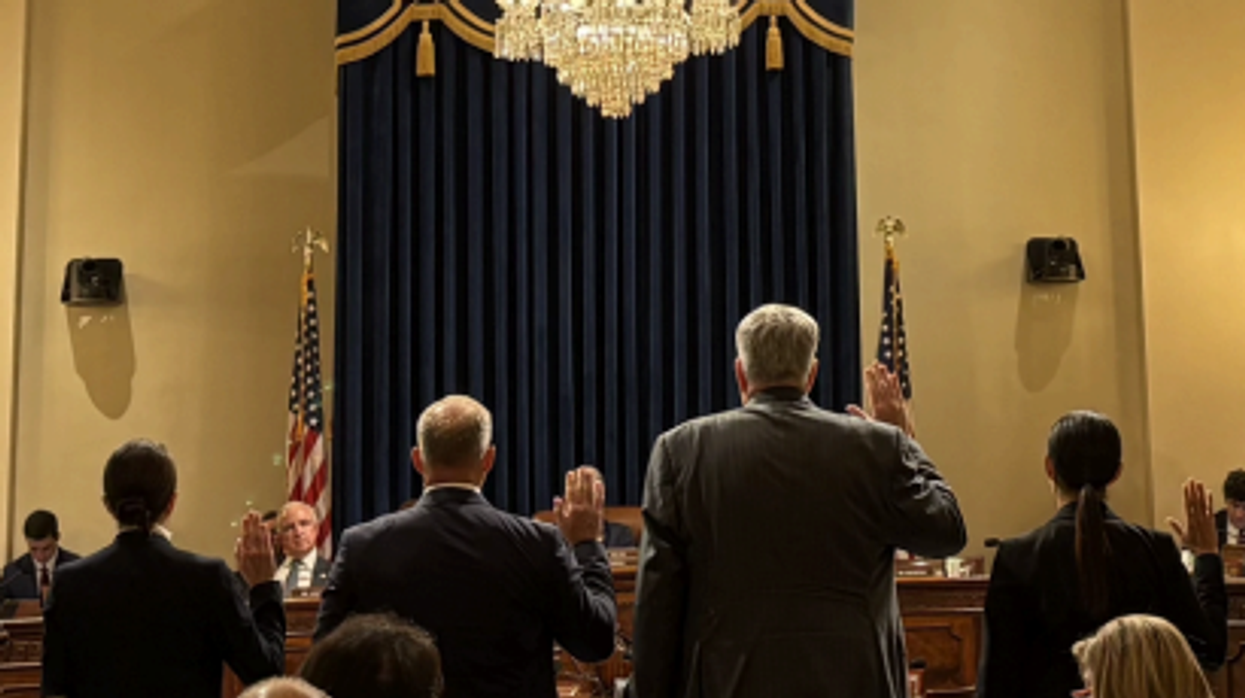WASHINGTON— Police leaders from cities across the United States that have experienced deadly attacks at major gatherings urged Congress Tuesday to provide adequate federal funding to cities hosting the 2026 FIFA World Cup and 2028 Olympic Games.
Security concerns were top of mind for law enforcement officials at a House Committee on Homeland Security hearing as the United States prepares to host mass events with millions of international travelers for its 250th anniversary and the FIFA World Cup, which will hold games in 11 cities across the country in 2026. The United States will also host the 2028 Olympic Games in Los Angeles.
Democrats on the committee criticized the Trump administration for its funding cuts and emphasized the importance of providing local partners with the necessary funds to ensure safety at major events.
“Unfortunately, the administration has cut, frozen, or slowed disbursement of DHS and FEMA grants to help cities address terrorism as well as regional preparedness. Cities and states needed that money,” said Rep. Nellie Pou (D-NJ), ranking member of the Task Force on Enhancing Security for Special Events in the United States.
Approximately $2.4 billion in FEMA grants to combat terrorism was being held up because the application guidelines for the grants had not been posted as of mid-July. FEMA is an agency of the Department of Homeland Security.
President Donald J. Trump’s budget provided $625 million in funding for security planning in World Cup host cities. However, Stacey Graves, Chief of Police of the Kansas City, Missouri Police Department, said not much is known about the timing, program restrictions, and application process for the grants.
“To date, the Kansas City, Missouri Police Department has not received any federal funds toward the planning and preparation for the FIFA World Cup 2026,” Graves said.
She urged the federal government to work quickly as the World Cup begins in less than a year, giving host cities a limited time to prepare security measures and equipment for the event.
Graves remembered the 2024 Super Bowl parade mass shooting in Kansas City, in which one person died and 24 were injured.
“The incident resulted in significant harm and cast a somber tone over the day, underscoring the unpredictable nature of such open-air, public events and the critical importance of coordinated emergency response and planning,” Graves said.
Graves emphasized the importance of security funding and planning as Kansas City prepares to host six matches at the FIFA World Cup.
Edward F. Davis, Former Commissioner of the Boston Police Department, recalled the 2013 Boston Marathon bombing.
“That tragic event underscored the devastating potential of lone-wolf actors and the vulnerabilities of open-access venues,” Davis said.
He emphasized the importance of interagency communication and keeping the public informed at large events, like the upcoming seven FIFA World Cup matches planned for Boston.
Republican lawmakers focused much of their attention on strategies for protecting against attacks by unmanned aerial vehicles and drone security. The NFL experienced over 2,800 drone incursions during the 2023 season. Unauthorized drones also interrupted emergency response operations twice this year. During the Palisades fires in January and the Texas floods in July, drones collided with emergency response aircraft, interrupting operations, according to Steven Willoughby, director of the Counter-UAS Unmanned Aircraft Systems Program Management Office.
“This [UAVs] is probably the greatest emerging threat now to these games,” Rep. Michael McCaul (R-Texas), Chairman of the subcommittee, said.
Currently, only the federal government has the authority to intercept drones. Most local officials cannot.
“There are times when local law enforcement is experiencing an issue, sees a threat, and doesn’t have the authority or the equipment to address the threat in real time,” Graves said.
Rep. Greg Steube (R-Fla.) introduced the Disabling Enemy Flight Entry and Neutralizing Suspect Equipment (DEFENSE) Act to permit local and state law enforcement to intercept drones believed to be a threat to security at large-scale events.
“We have a lot of work to do ahead of these events, but this hearing is a strong first step to ensure the incidents we discussed today never happen again,” McCaul said.Erin Drumm is a reporter for the Medill News Service covering politics. She graduated from the University of Notre Dame in 2024 with a BA in American Studies and is now a graduate student at Northwestern University’s Medill School of Journalism, specializing in politics, policy, and foreign affairs.
The Fulcrum is committed to nurturing the next generation of journalists. To learn about the many NextGen initiatives we are leading, click HERE.




















